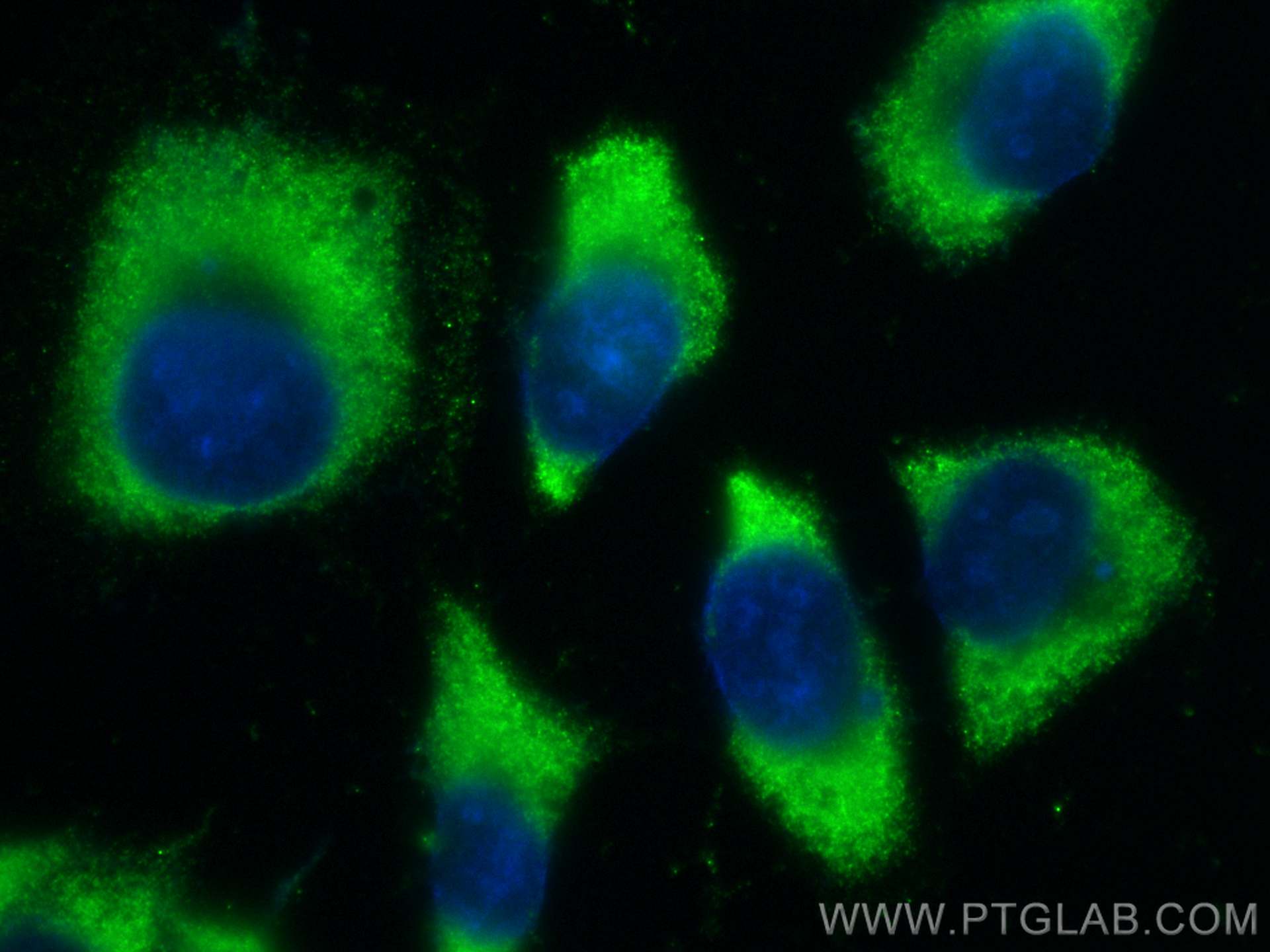验证数据展示
经过测试的应用
| Positive IF/ICC detected in | HeLa cells |
推荐稀释比
| 应用 | 推荐稀释比 |
|---|---|
| Immunofluorescence (IF)/ICC | IF/ICC : 1:50-1:500 |
| It is recommended that this reagent should be titrated in each testing system to obtain optimal results. | |
| Sample-dependent, Check data in validation data gallery. | |
产品信息
CL488-68308 targets MOCS2 in IF/ICC applications and shows reactivity with human samples.
| 经测试应用 | IF/ICC Application Description |
| 经测试反应性 | human |
| 免疫原 |
CatNo: Ag6282 Product name: Recombinant human MOCS2 protein Source: e coli.-derived, PET28a Tag: 6*His Domain: 1-188 aa of BC046097 Sequence: MSSLEISSSCFSLETKLPLSPPLVEDSAFEPSRKDMDEVEEKSKDVINFTAEKLSVDEVSQLVISPLCGAISLFVGTTRNNFEGKKVISLEYEAYLPMAENEVRKICSDIRQKWPVKHIAVFHRLGLVPVSEASIIIAVSSAHRAASLEAVSYAIDTLKAKVPIWKKEIYEESSTWKGNKECFWASNS 种属同源性预测 |
| 宿主/亚型 | Mouse / IgG1 |
| 抗体类别 | Monoclonal |
| 产品类型 | Antibody |
| 全称 | molybdenum cofactor synthesis 2 |
| 别名 | MOCS2B, MCBPE, MOCO1, MOCO1 A, MOCO1-A |
| 计算分子量 | 21 kDa |
| 观测分子量 | 21 kDa |
| GenBank蛋白编号 | BC046097 |
| 基因名称 | MOCS2 |
| Gene ID (NCBI) | 4338 |
| RRID | AB_3084471 |
| 偶联类型 | CoraLite® Plus 488 Fluorescent Dye |
| 最大激发/发射波长 | 493 nm / 522 nm |
| 形式 | Liquid |
| 纯化方式 | Protein G purification |
| UNIPROT ID | O96007 |
| 储存缓冲液 | PBS with 50% glycerol, 0.05% Proclin300, 0.5% BSA, pH 7.3. |
| 储存条件 | Store at -20°C. Avoid exposure to light. Stable for one year after shipment. Aliquoting is unnecessary for -20oC storage. |
背景介绍
MOCS2(Molybdenum cofactor synthesis 2) is a heterotetrameric synthase comprised of 2 small (MOCS2A) and 2 large (MOCS2B) subunits. MOCS2 acts as a sulfur carrier required for molybdopterin biosynthesis. The two MOCS2 proteins A and B are subunits of molybdopterin synthase incorporating sulfur groups delivered by the MOCS3 sulfurylase.
实验方案
| Product Specific Protocols | |
|---|---|
| IF protocol for CL Plus 488 MOCS2 antibody CL488-68308 | Download protocol |
| Standard Protocols | |
|---|---|
| Click here to view our Standard Protocols |


